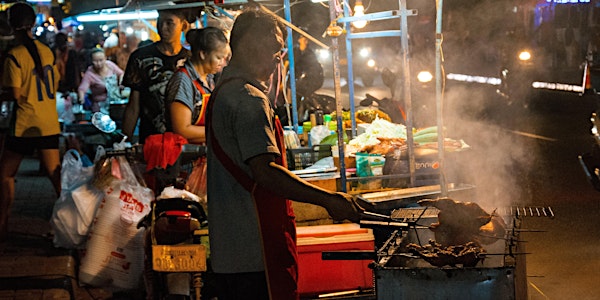This exposure brings with it an increased risk of suffering from serious health problems such as heart or cardio-vascular disease, strokes, lung cancer and damage to immune, neurological, reproductive, and respiratory systems, with significant cost implications to public systems.
Beyond health, there are also indirect impacts on the workforce and employers. For example, policies to close schools when air quality reaches dangerous levels create caring responsibilities for working parents, as do health impacts of poor air on children. The caring responsibility generally falls on mothers who may have to take time off work and suffer a loss of income. The effects of air pollution on the labour market from a gendered perspective are among the least known dimensions of this global challenge.
Spikes in air pollution during Thailand’s cool season in recent years, precipitated by agricultural and forest fires, as well as general widespread usage of real-time air quality monitoring apps, have increased awareness about the real danger posed by poor air. Certain parts of the country face year-round poor air due to industrial emissions.
The Thailand Clean Air Network (TCAN) has been established to raise understanding nationally about causes and solutions to air pollution and is pushing for a Thailand Clean Air Act. Various research initiatives are under way to better understand the implications of air pollution for distinct population groups and sector, including those facing higher levels of daily exposure due to the nature of their work, and the gendered impacts this can have on the labour market.
As peak haze season approaches, join our event at the Foreign Correspondents' Club of Thailand (FCCT), where air quality activists and researchers discuss in depth on who really pays the price of air pollution in Thailand, and what can we do to ensure more equity, and cleaner air for all.
Speakers:
Dr. Diane Archer - Senior Research Fellow, Stockholm Environment Institute (Asia)
Prof. Thongchai Panswad - Founder and President, Thailand Cycling Club (TCC)
Ms. Weenarin Lulitanonda - Co-founder, Thailand Clean Air Network
Dr. Pornsri Suthanaruk – Director of Air Quality and Noise Management Division, Thailand Pollution Control Department (PCD)
Ms. Nuchanart Thaenthong - Head, Four Regions Slum Network
Mr. Felix Weidenkaff - Employment Specialist, International Labour Organization
Moderator: Ms. Rina Chandran, Thomson Reuters Foundation
**Simultaneous translation in Thai will be provided.
